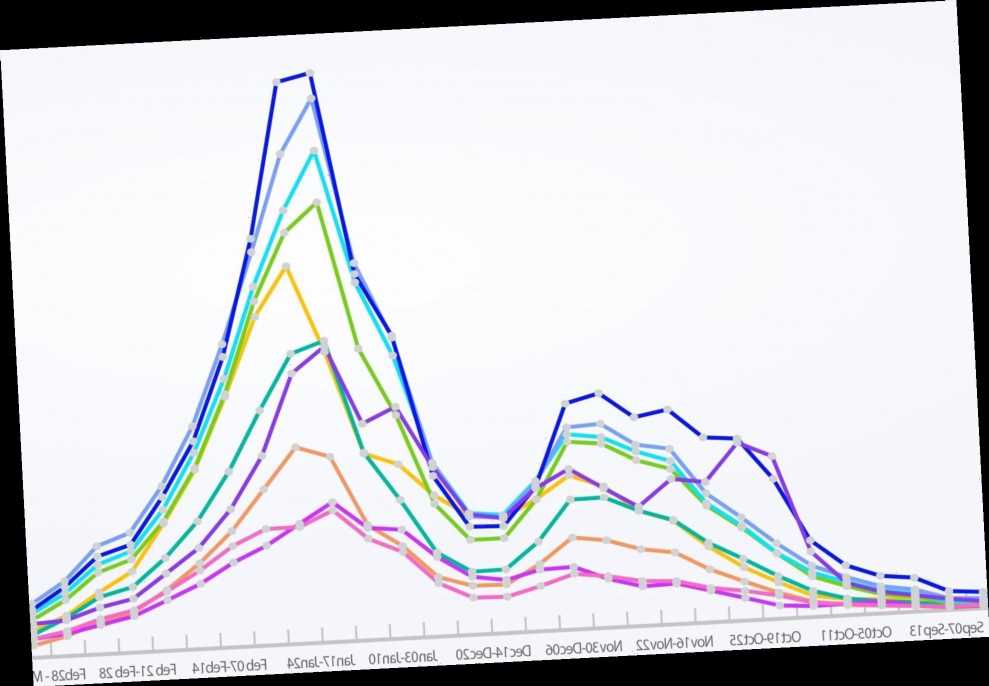COVID-19 is in retreat but it won't take much for a dangerous third wave to ignite, the chief of Public Health England (PHE) has warned.
Cases of the virus have fallen in all regions in England and infections are highest in those aged between 30 to 39 years old.
? Read our coronavirus live blog for the latest news & updates…
The latest surveillance report from PHE states that as of 9am on March 9, 3.7 million people tested positive for Covid-19.
This is a slight increase from last weeks infection levels when 3.6 million had tested positive.
Increased surge testing has been in place over the last few weeks due to the detection of the South African and Brazilian variant.
It also emerged today that there have now been ten detected cases of the Brazilian variant in the UK.
The slight increase in positive cases reported by PHE could be down to the increased testing in some areas.
As well as increased testing, over 22.8 million Brits have now received a first dose of either the Oxford/AstraZeneca jab or the Pfizer/BioNTech offering with over 1.2 million having had their second.
Dr Yvonne Doyle, medical director at PHE said the uptake of vaccines, as well as Brits adhering to social distancing measures have all made a difference when it comes to driving down infection rates.
Commenting on this weeks surveillance support she said: "When you are offered a vaccine make sure to take it.
"The last thing we want now is for rates, deaths and hospitalisations to go back up.
"We are still in a precarious situation and it would not take much for a dangerous new wave to take off.
"So even if you have had the vaccine, keep contacts to a minimum, keep your distance and keep washing your hands regularly and thoroughly.”
Her comments come after chief medical officer Chris Whitty this week warned that there will be a further surge of Covid-19 in the future.
He warned Covid will "find the people who have not been vaccinated", or for whom the jab does not work.
Speaking to MPs in the Science and Technology Committee today, Prof Whitty said: "What we are going to see is as things are opening up, what all the modelling suggests is that at some point we will get a surge in virus.
"Whether that happens, we hope it doesn't happen soon, but it might for example later in the summer if we open up gradually, or if there is a seasonal effect, it might happen over the next autumn and winter.
"But all the modelling suggests there will be a further surge and that will find the people who either have not been vaccinated, or the vaccine has not worked.
"Some of them will end up in hospital, and sadly some of them will die. And that's just the reality of where we are with the current vaccination."
Data from PHE states that infection are lowest in those aged 70-79 years old with a rate of 20.2 per 100,000 population.
After the over 85s and those who work in care positions, the 70-79 year olds had been next in line for the jab.
The data also highlighted that Yorkshire & The Humber is the region with the highest infection rates at 97.6, the lowest are in the South West with a rate of 32.3
Hospital admission rates across England have also fallen, the report states.
Rates are now at 5.95 per 100,000, compared to 8.33 the week before and the report states admissions have fallen across all regions.
Admissions are the highest in the West Midlands with a rate of 8.88 and the highest admission rates continue to be those aged 85 and above.
Data from the government's coronavirus dashboard states that at present there are 7,451 people in hospital with Covid-19 in England.
Dr Gayatri Amirthalingam, consultant epidemiologist at PHE said that routine testing of blood donor samples shows that the vaccine is having an impact on the number of people who have antibodies in the age groups that have been jabbed.
This Dr Amirthalingam said, suggests there is a good immune response to Covid-19 vaccines across the population.
"This further supports the decision to prioritise the first dose.
“The latest data show that among blood donors aged 70 to 84 years, who were in the first groups prioritised for Covid-19 vaccination, almost 60% are antibody positive due to either infection or vaccination.
"This compares with only 5 per cent who have antibodies as a result of infection.
“However, no vaccine is 100 per cent effective, so it is vital to follow the lockdown rules and remember hands, face, space even after vaccination.”
Source: Read Full Article











